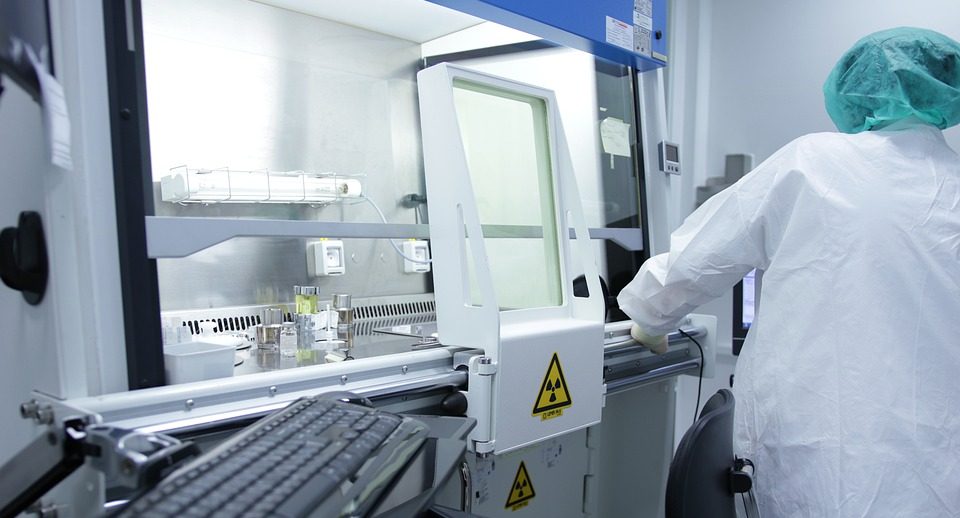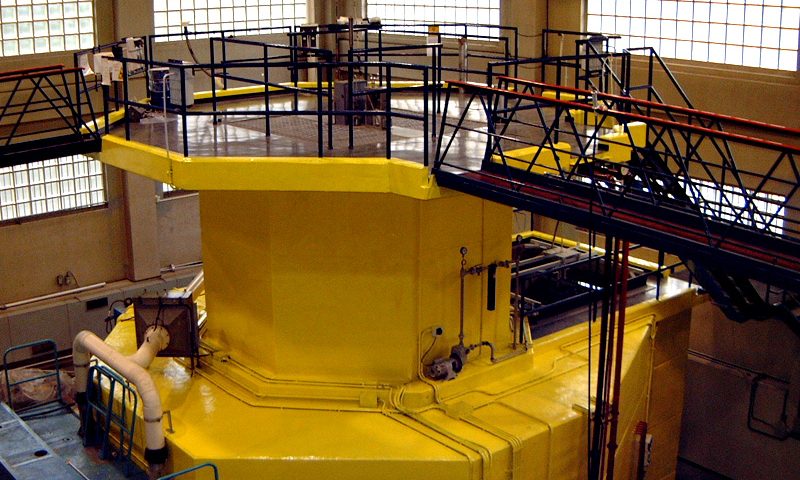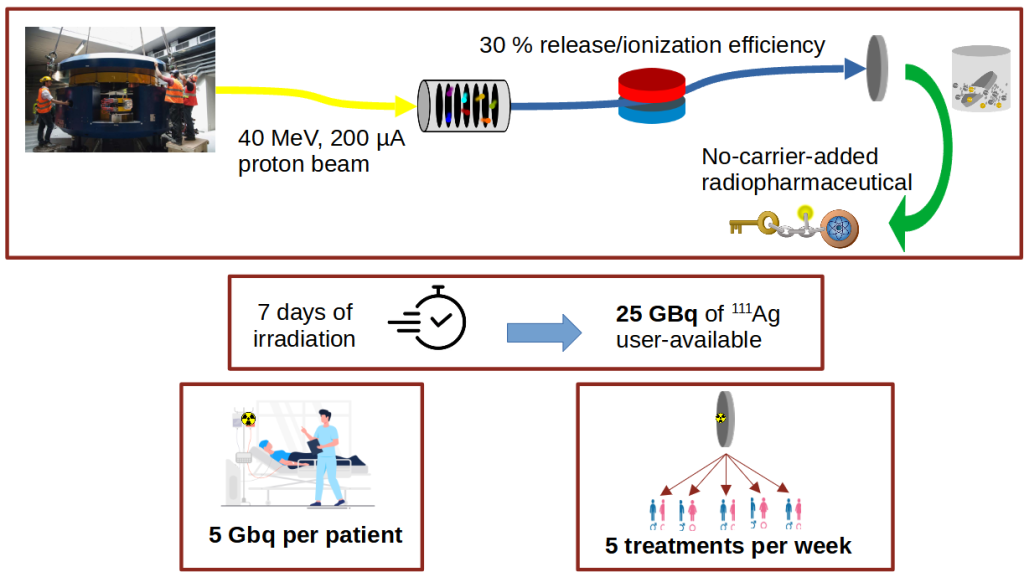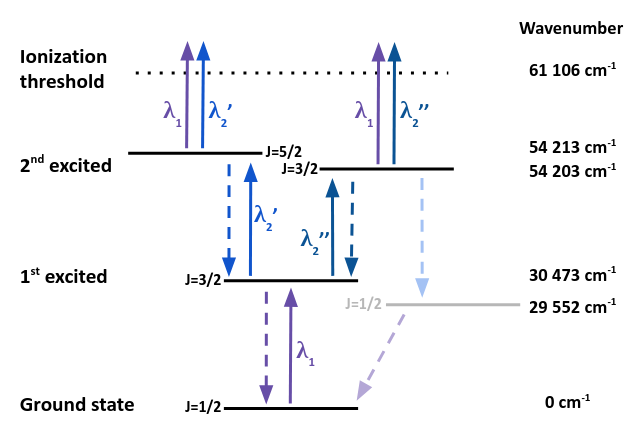Latest news from ISOLPHARM
Ag-111 production at SPES
FLUKA calculations were used to estimate the production rate of Ag-111 and other medical radionuclides at SPES. A detailed explanation is presented in a dedicated page. These calculations were published[…]
Read moreQuantum insights into the photo-ionization of silver-111 in a new paper by the laser group
After several experimental works, a first theoretical study was recently released by the SPES-ISOLPHARM laser group. The paper, entitled “Laser photo-ionization efficiency of silver-111 for the SPES-ISOLPHARM project”, was published[…]
Read moreTwo new publications in radiobiology!
Two new papers were published by the ISOLPHARM collaboration in July 2025. Both articles belong to the WP4 activities of the ADMIRAL experiment, dealing with radiobiology and radiation biophysics. The[…]
Read moreA Large Collaboration Between Universities and Research Centers
The ISOLPHARM Project was born from the collaboration between the Departments of Pharmaceutical and Pharmacological, Department of Chemical Sciences of the University of Padova and the Legnaro National Laboratories (LNL) of the National Institute of Nuclear Physics (INFN) where the Selective Production of Exotic Specie (SPES) project in under development. By means, of Isotope Separation On-Line technique both traditional and innovative radioisotopes will be produced with high-specific activity, going beyond the state-of-art of the radioisotope production.
Read more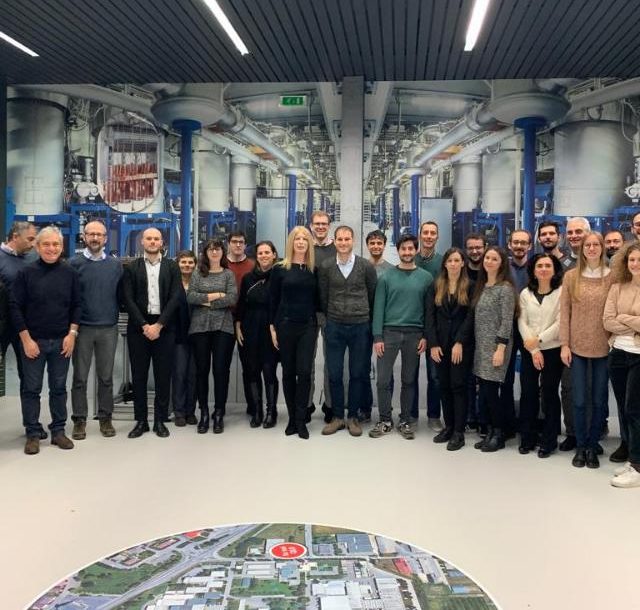
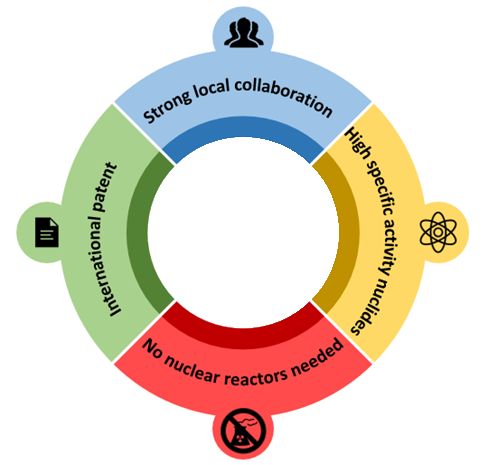
Strengths and key features
The key features of ISOLPHARM are: a) the presence of a strong local collaboration between INFN-LNL, INFN-PD, INFN-PV, TIFPA, UNIPD and UNIBS in many fields of research, ranging from the production of the RIBs to the employment of the radionuclides. b) the ISOL technique, which can easily provide high specific activity radionuclides. c) the INFN patent, which proves the innovation and excellence of the project. d) the low environmental and social impact, since nuclear reactors are not used for the provision of the radionuclides, which traditionally may be obtained irradiating massive amount of materials, that lately become tons of nuclear wastes.
Advantages
VERSATILITY
Production of a large set of radionuclides carrier-free and with large radionuclide purity
INNOVATIVITY
Many unconventional radioisotopes (short T 1/2) difficult to produce with traditional techniques
FLEXIBILITY
On-line mass selection by tuning the separator; easy production of different radionuclides
GREEN
Low production of radioative waste material
2023-2025 Project
ISOLPHARM_ADMIRAL
The future for radiopharmaceutical production at ISOLPHARM
